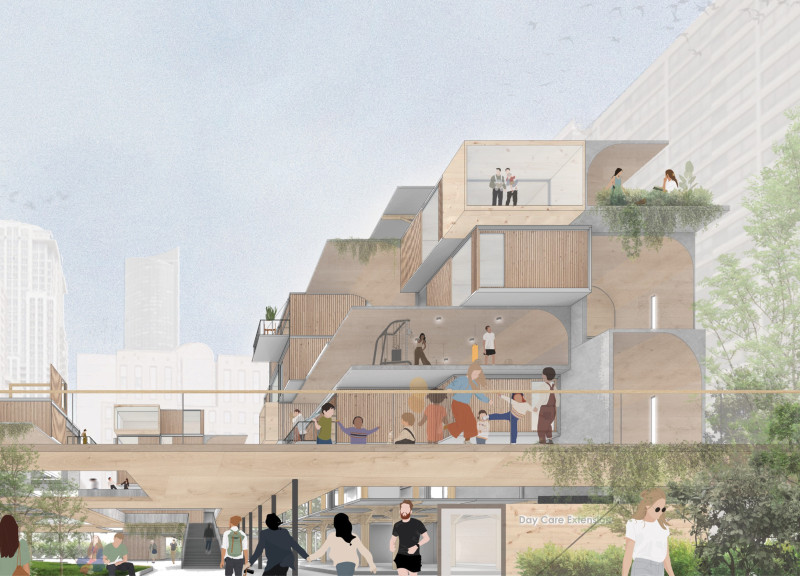5 key facts about this project
The project addresses a significant challenge in Toronto: the growing need for affordable housing. Located primarily in the Bay Street Corridor, it seeks to provide housing options that are accessible to a wide range of residents. The goal is to create units that cost no more than 30% of a household's monthly income. The design concept revolves around modular housing solutions that prioritize adaptability and community connection, offering a practical response to pressing housing issues.
Modular Framework
A key feature of the design is a modular framework built from prefabricated units. These units consist of multiple panels that can be easily assembled, which helps reduce both construction time and costs. This system supports various configurations, allowing units to be connected together. This flexibility makes it possible to accommodate families of different sizes and adapt living spaces as needs change over time.
Community Integration
The design goes beyond providing simply residential units. It includes multifunctional spaces that support recreation, commerce, and care services. This approach promotes a lively community environment. By integrating such diverse functions, the project encourages social interaction among residents and aims to enhance their overall quality of life.
Personalization and Adaptability
Another important element is the potential for personalization within each modular panel. Households can modify their living spaces to better fit their individual needs. There are opportunities to add standardized extension modules, which allow families to expand their homes with additional rooms or dedicated office spaces. This adaptability ensures that units can respond effectively to the evolving demands of each household.
The emphasis in the design is on fostering a sense of belonging within the urban fabric. By balancing affordability, functionality, and community-friendly features, the outcome is a practical solution for Toronto's housing market. The interconnected nature of the units, along with their versatile design, provides enhanced living environments while promoting meaningful connections among residents and their surroundings.



















































